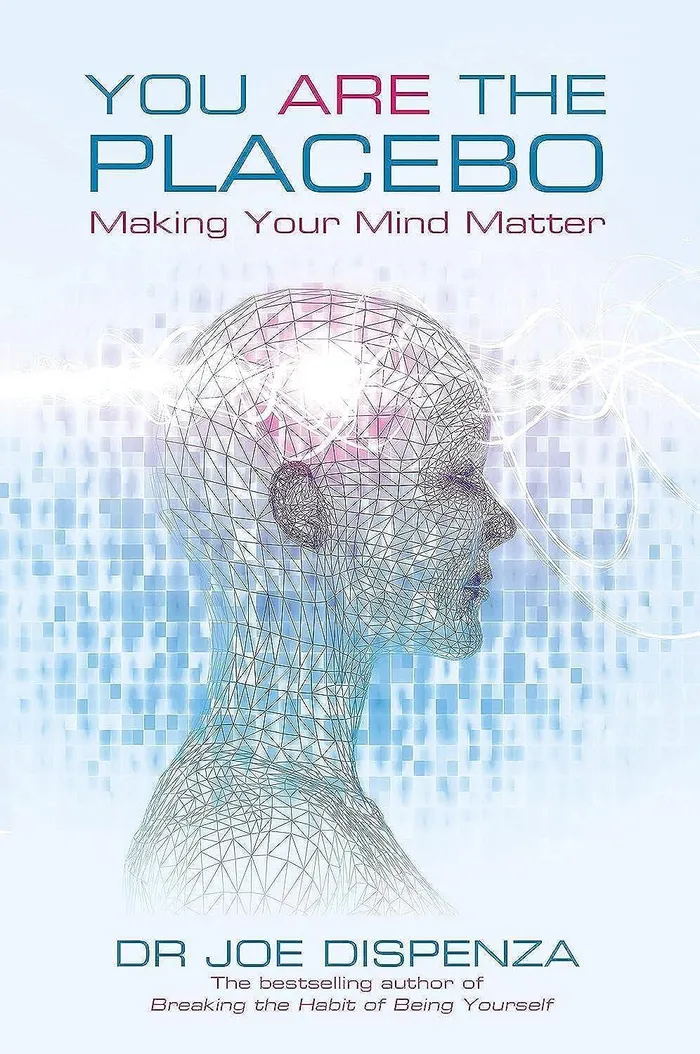
Experience the journey of transforming our lives by discovering how our beliefs can shape our health and reality.
Image: Supplied
Have you ever wondered how much your beliefs shape your reality? You do not need morning traffic to feel depleted. The pressure builds even in quiet spaces.
For me, just working from home, running between calls and emails, the sense of tension is always close. When I first started reading You Are the Placebo, by Joe Dispenza, I was skeptical. The title implies something exaggerated, but the book explores how belief and expectation shape physical outcomes through routine and intention.
What stuck with me most were the stories backed by research. For instance, there is the example of athletes given an inert supplement before a competition. They were told, "This will boost your performance." The cyclists, believing it, showed tangible improvements: faster times, more endurance, even though chemically, nothing changed.
Neurologists recorded shifts in their brain patterns, pain perception, and hormone levels. Placebos genuinely influenced their bodies, but only because the athletes expected them to. It is not a miracle. It is the mind’s capacity to influence the body under specific conditions.
There is a personal dimension too. I have always noticed that my mindset around pain and stress matters. When I expect a long workday to be draining, it often is. But when I convince myself I have energy and focus, everything feels lighter. The book's argument that beliefs set the stage for physical outcomes is validated in these everyday moments. I do not wake up magically healed, but I do find small changes, especially with routines that combine intention and practical action: good sleep habits, physical movement, and mindful relaxation.
Science backs this up. Across thousands of studies, patients given sugar pills for conditions like migraines, pain, and anxiety often show real improvements. The expectation itself releases chemicals like endorphins and dopamine, altering brain activity and pain signals. Dr Andrew Weil and Carol Dweck, both grounded in evidence, point out that this mind-body connection is not just positive thinking but a measured chain reaction.
What you expect influences what your nervous system delivers. Is it possible to heal by thought alone without drugs or surgery? It is documented more often than assumed but only under specific measurable conditions.
The book does not offer guarantees. Placebo effects are most evident in conditions linked to mood, pain, and recovery, and less so in cases of infection, injury, or serious illness. The author blends research with practical advice and consistently warns against abandoning medical care or relying on wishful thinking. The focus is on pairing expectation and mindset shifts with daily habits to support measurable change. Belief does not replace treatment. It is a tool for testing how intention, repetition, and routine shape outcomes over time.
One quote that always rings true is: "The expectation of a certain outcome powerfully influences physical reality." It is a reminder that, when paired with discipline and steadiness, belief is not just fluff; it is part of how we recover, adapt, and change.
My own experiment was simple. When feeling burnt out, I set aside a few minutes to not just rest, but to visualise my body relaxing and recharging. Sometimes, the answer was subtle: better mood, less tension, slightly more patience with the endless parade of emails. Other times, not much happened, and that is fine too. The takeaway for me was patience.
Transformation, even minor, requires regular, honest effort. The changes might be small, but they are real.
In the end, the book says you can shape your experience with belief, intention, and routine. Expectation does not replace hard work or medical action, but it can amplify your results. Changes are gradual, often subtle, but worth recognising and repeating.
If you want to try this yourself, choose one area of daily life: handling stress, improving sleep, managing pain. Pair a mindset shift with steady, smart routines and see what happens over a week or two. Chances are, you will notice those tiny gains that build up over time.
That is what You Are the Placebo is really about: using the power of expectation, not as a cure-all, but as a lever for small, meaningful improvements—a lesson backed by research, and one I have seen in my own life.
What these studies show isn’t beauty. It’s biology responding to expectation under specific conditions. It is not about tricking yourself or relying on wishful thinking. Instead, it is about applying well-studied habits like gratitude, visualisation, and expectation to your routine and watching for real, incremental change
When I pay attention to my mindset before starting work or winding down for rest, I notice small but measurable shifts. Sometimes I sleep better. Other times I feel less tension or more energy. These changes are not dramatic, but they are consistent. They reflect what the book and research suggest.
The mind and body respond to expectation, especially when supported by routine. If you are curious, choose one area such as stress, rest, or mood and practise a mindset shift with consistency. Do not expect instant change. Track how belief and repetition shape your results over time.
For me, the most useful insight from the book is that change happens when belief is paired with routine. That is not an illusion. It is evidence. And it is something I choose to repeat.